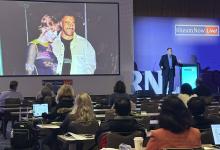Eat the Frog Save

Surely you've heard the phrase “eat the frog first”.
It's part of a get-organized philosphy, where you're supposed to do the hard thing first. Meaning, instead of putting off the difficult, problematic or inevitable, you tackle it (the frog) first thing - now or tomorrow morning, pronto!
It's one of those things that highly successful people do, or it could be part of a 12-step course for the discombobulated and overburdened. For many, it's easier to join a movement than to do “the hard thing”.
Mark Twain said, “...if you get up in the morning and first eat a frog, the rest of the day will be easy”. Forget about where to find/buy the inedible frog, or the digestive implications. Twain was offering a better sense of priority with one's daily approach to life.
There are several scenarios where physicians should learn to “eat the frog”:
Legal and Finances. These are usually tough life decisions or issues. But, too often we put off legal matters, like advanced (life/death) directives, wills, etc. The same can be said for financial planning or resolving debt. Or just meeting with the key people (lawyers, accountants, investment experts) to resolve these issues. These are all frogs waiting to be eaten.
Patient Directives. It is incredibly important to deliver a priority message when changing or introducing new therapies. Without the urgent directive from the prescriber, patient decision-making errs towards the waffle-and-wait inaction or even worse, noncompliance and non-adherence. If you (the person who best knows the consequences) don’t tell your patient to “eat the frog”, then who will? For example, most patients don't lose weight when instructed to do so. However, the ones that lose weight most frequently cite their physician's directives and education as their primary motivation for change.
I had a recent “eat the frog” discussion with a patient about knee replacement. She knew she despirately needed arthroplasty, but was dissuading herself from surgery because of uncertainty and weak counter-intelligence (her age, stories from neighbors about pain or difficult rehab, etc.). Her orthopedist further enables her indecision by offering weekly hyaluronic acid injections when she doesn’t sign up for surgery. Seriously….hyaluronic acid? Isn’t that what you get when there's nothing else to do? The patient had not been given a clear vision of the hope or the goals. I reviewed her need for prehab, the expectations for pain, rehab and the expected benefits. After acknowledging that it’s hard to chose major joint surgery, I told her it’s time to “eat the frog”.
I can recall another version of this from my days at Parkland Memorial Hospital when I heard a good-ole southern resident surgeon implore a reluctant patient to agree to surgery. He said, “Mrs Jones…it’s time to pull the handle on the dump-truck”. I’m guessing this is the southern version of “eat the frog”.
Other examples include the patient who needs to stop learning “to live with it” and instead bite the bullet and start an arthritis drug that actually works, or the patient who needs to commit to a diet and exercise program instead of pharmaceuticals that have more risks and are less effective.
Consumer Reports estimates that less than half of all prescriptions go unfilled in the 6 months that follow a doctor visit. It’s highly likely that discussions of urgency or “eat the frog” did not occur when that prescription was first written.
Doctor's Day Planning. Most of us are at the mercy of a schedule that eats our time like one of those junk eating monsters in Ghostbusters. There’s too much to do but not enough time to get it done. We compound this by putting off the frog-eating thing you need to do most. The interesting thing about that worst, hardest or most objectionable task is that it usually isn't the most time consuming. The majority of these “frogs” can be dispensed with in minutes - rather than hours or weeks. The frog promotes procrastination rather than motiviation. If you divided your “To-Do” list into a “Frog List” and “To-Do” list, your list would have far more cross-offs.
Career Decisions. While I believe that most physicians and rheumatologists are content with their jobs and career, there are many who are burning out, stuck in the wrong job or considering a change. But change is full of uncertainty and unexpected side effects that weigh against the certain benefits; indecision is reinforced and perpetuated. Your inability to make the change is the same faulty mind game your patients play when they don’t fill your prescription or agree to the advised surgery.
Eat the frog, you’ll thank me later.







If you are a health practitioner, you may Login/Register to comment.
Due to the nature of these comment forums, only health practitioners are allowed to comment at this time.